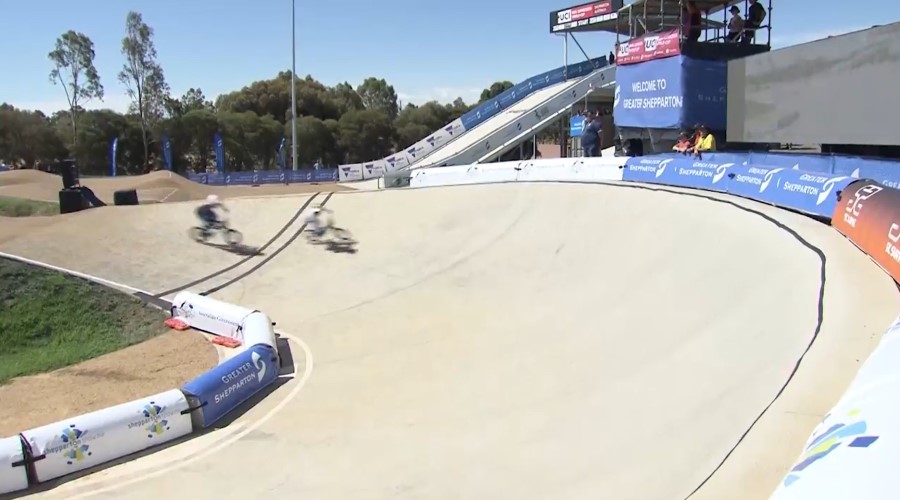
The 2026 Commonwealth Games will be a celebration of regional Victoria brimming with opportunities for business and industry.
But these opportunities won’t just appear; those keen for a slice of the action will need to be prepared ahead of the scheduled release of tenders, guests at an Ai Group webinar were told this week.
Not only that, but businesses will be expected to demonstrate they are socially inclusive with employees reflecting indigenous, multicultural and gender diversity as well as people of different physical ability.
Breaking with tradition, events at the 2026 Games will be held in five regional hubs rather than a central location.
More than 4500 athletes from 72 Commonwealth nations will compete in 20 sports and nine para sports at venues in Geelong, Bendigo, Ballarat, Shepparton and Gippsland, with Melbourne hosting the opening ceremony.
The event, to be held over 12 days in March, is expected to:
Villages will be built in all the hubs except Shepparton, where athletes and team officials will stay in Bendigo.
Huge upgrades to about six venues across the state are planned, and temporary venues will be developed down the track.
Kate Matson, Chief, Games Services, of the Victoria 2026 Commonwealth Games Organising Committee, is overseeing the planning and delivery of non-sporting operations.
“In terms of opportunities for business and industry, there is an awful lot,” she said.
“We're going to have significant procurement activity over the next three years and we’ll be procuring a range of services including catering, cleaning, waste, transport and security.”
Three key priorities in terms of procurement have been established:
Sustainability and carbon neutrality are also high on the list.
“This will be the first time we've had a decentralised Commonwealth Games,” Ms Matson said.
“It will feel different. People will be closer to the sporting action. We've got more venues, smaller venues, and it is out in regional Victoria, where communities haven't had this world-class event brought to them on such a big scale at the same time before.
“We're looking forward to regional Victorians ‘owning’ these Games and participating both as communities and businesses.
“We'll be celebrating regional Victoria, and we really do want to work with regional business as we do that.”
Engagement forums will be held to keep interested parties up to date.
The procurement pipeline is expected to be published early next year and will be updated every six months.
Opportunities will be advertised via the Buying for Victoria website.
Businesses are encouraged to register their interest on this website, as well as submit expressions of interest for registered projects and work packages on ICN Gateway, established by the Industry Capability Network (ICN).
Dianne Smith, CEO of ICN Victoria, said: “Our purpose is to maximise the benefits for local communities, both social and economic, by connecting local firms into the Commonwealth Games-related projects and procurement opportunities, be they small or large.
“ICN Gateway showcases billions of dollars of projects across a range of sectors and projects. Currently, we've got about 80,000 suppliers nationally on our platform, so if you haven't already, please register your business on Gateway.
“It’s free for a basic listing and it will raise your business profile. We will be promoting Commonwealth Games opportunities here as they come to light.”
Smaller companies are encouraged to bid for tenders.
“We want everyone to have the opportunity to participate,” Ms Matson said.
“That might involve linking up with a bigger company or chunking some procurement contracts down into smaller sizes, so that smaller businesses regionally can participate.
“That said, we only have three years so, where we can't find the right expertise or the right capacity, we will need to look across Australia, or potentially even internationally, for some specialty services or goods.”
The Organising Committee is aware of the challenges that skills shortages and low unemployment bring to servicing the Games.
Modelling is being done to determine the size of the workforce needed, and a workforce strategy will be established in the first half of next year.
Conversations have already started with TAFEs to ensure there will be training capacity if skills shortages in particular workforce cohorts are recognised.
“We want to rely on the local employment market in each host city, but they might not be big enough,” Ms Matson said.
“We know there are workforce shortages and housing challenges in regional Victoria for workers.
“We're looking at all sorts of innovative ideas because we’re aware we’re going to need people from not just regional Victoria or Melbourne or even nationally.
“For instance, organisers of the Gold Coast 2018 Commonwealth Games had to bring in security guards from New Zealand.
“Noting where the unemployment levels are at the moment, we're open to exploring every avenue, including visas and migration to assist the delivery of the Games.”
Now is the time to set the wheels in motion.
To assist members, Ai Group is establishing Games 2026 Connect, headed up by Regional Manager for Victoria, Jenny Berry.
“The Commonwealth Games are an amazing opportunity to re-promote and re-energise industry, business and regional Victoria post-Covid,” Ms Matson said.
“We've got a purpose and a vision, and we want to make these Games successful.”

Wendy Larter is Communications Manager at the Australian Industry Group. She has more than 20 years’ experience as a reporter, features writer, contributor and sub-editor for newspapers and magazines including The Courier-Mail in Brisbane and Metro, the News of the World, The Times and Elle in the UK.